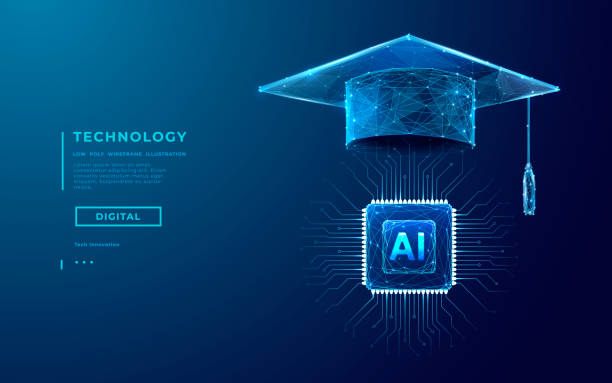Last Updated on August 20, 2025 by Luxe
Key Takeaways
- Adapting computing education to rapid industry changes helps students remain future-ready.
- Core skills, from problem-solving to collaboration, are as vital as technical expertise.
- Broad exposure to coding, ethics, and real-world issues better prepares students for technology careers.
- Strong partnerships between education, industry, and communities accelerate opportunities for learners.
Table of Contents
- Shifting Demands In Computing Careers
- Essential Skills For Students
- Integrating Ethical Thinking Into Curricula
- Early Exposure And Accessibility
- Project-Based Learning And Real-World Applications
- Collaboration And Cross-Disciplinary Approaches
- Building Industry And Educational Partnerships
- Embracing Diversity In Computing
- Conclusion
Shifting Demands In Computing Careers
Today’s computing landscape is more dynamic and rapidly changing than ever before, characterized by a continuous evolution of tools, programming languages, and diverse professional roles within the technology sector. As groundbreaking developments in artificial intelligence, big data analytics, and automation continue to redefine various industries across the globe, students who are preparing for careers in the tech field must develop the mindset of lifelong learners, constantly updating their skills and knowledge. The need for adaptability and resilience in the face of technological shifts is now more important than ever, and the increasing demand for talented individuals who can quickly master new and emerging technologies is only expected to grow significantly in the coming years. According to a recent detailed report published by the New York Times, qualities such as flexibility, creativity, and problem-solving skills have now become the top priorities among leading technology employers seeking to hire the best talent available. Nurturing this future-ready, versatile mindset begins with providing a comprehensive, robust, and broad-based computer science education that goes well beyond simple coding drills and basic syntax. Students should have access to diverse curricula that firmly anchor their understanding of core technical fundamentals while also encouraging exploration, curiosity, self-motivation, and critical inquiry. Educational programs that effectively expose learners to both theoretical concepts and their practical applications, as well as real-world problem-solving scenarios, help set a solid foundation for sustained, long-term success in the fast-evolving tech industry.
Essential Skills For Students
Mastery of programming languages, algorithms, and foundational computer science concepts remains crucial for success in the rapidly evolving tech landscape. However, technical expertise alone is not enough to excel in today’s competitive environment. In-demand tech professionals are increasingly recognized by their ability to synthesize information from diverse sources, think critically and logically to solve complex problems, and collaborate effectively within diverse, multidisciplinary teams. Strong communication skills, adaptability to changing circumstances, and adept project management are now considered essential core competencies that complement technical fluency. According to a recent LinkedIn survey, employers are placing greater emphasis on these soft skills to build innovative, agile, and resilient teams capable of navigating the uncertainties of the modern workplace.
Encouraging students to navigate both technical and human challenges simultaneously empowers them to thrive in dynamic workplaces where cross-functional collaboration and interdisciplinary efforts are key drivers of success. Active participation in clubs, peer mentoring programs, and interdisciplinary projects can significantly help foster these vital abilities throughout their educational journey, better preparing them for future careers and leadership roles.
Integrating Ethical Thinking Into Curricula
As technology’s influence on society grows, ethical reasoning has become a non-negotiable skill for future professionals. Students must grapple with complex issues such as privacy, security, bias, misinformation, and the societal implications of emerging digital innovations. Embedding ethical principles in computer science programs teaches students to consider the broader impact of their creations.
Leading universities are actively incorporating responsible computing content into their coursework. Exposure to real-world ethical dilemmas, case studies, and debate encourages students to develop a moral compass aligned with global standards. This trend reflects the need for accountable innovation amid rising scrutiny from governments and the public.
Furthermore, fostering ethical awareness prepares students to navigate the challenges of an interconnected world responsibly. Universities are also collaborating with industry leaders to ensure their curricula stay relevant to current societal demands. Ultimately, integrating ethics into technology education helps shape professionals committed to making positive, ethical contributions to society..
Early Exposure And Accessibility
Computing should be accessible to all students, regardless of background or prior experience. Early exposure—through coding clubs, community programs, and accessible online resources—can play a critical role in sparking interest and building foundational skills. Bridging opportunity gaps not only helps foster more diverse technology talent but also addresses broader equity issues in education and career advancement.
Expanding these programs in schools and communities can further democratize access to technological education. It’s crucial for policymakers and educators to work together to develop inclusive curricula that showcase diverse viewpoints. By doing so, we can cultivate a new generation of innovators who are prepared to tackle global challenges.
Research published by Education Week highlights how early, immersive experiences in computing positively influence future academic engagement and career exploration, especially for students in underserved communities.
Project-Based Learning And Real-World Applications
When students apply computer science skills to real-world problems, abstract theories become meaningful and lasting. Project-based learning—such as developing web applications, analyzing open data, or participating in hackathons—cultivates creativity and confidence while simulating the sorts of challenges faced in industry. According to Forbes, these hands-on experiences are directly linked to higher job placement rates and better workplace readiness after graduation.
Employers highly value candidates who can showcase real projects and practical achievements alongside academic transcripts. Encouraging students to work on tangible deliverables—whether in capstone projects, internships, or community partnerships—ensures they develop the skills required to enter the workforce with confidence and creativity.
Collaboration And Cross-Disciplinary Approaches
Many of today’s breakthroughs happen where disciplines intersect—spanning healthcare, business, environmental science, and more. Preparing students to operate within multidisciplinary teams helps broaden their perspective, cultivate empathy, and communicate across domains. Group projects and collaborative problem-solving exercises mirror modern industry dynamics and foster an appreciation for diverse viewpoints.
Exposure to teamwork outside the traditional boundaries of computer science not only benefits academic outcomes but also strengthens professional networks and long-term employability.
Building Industry And Educational Partnerships
Bridging the gap between academia and industry enriches student learning and clarifies the path to employment. Strong partnerships offer guest lectures, mentorships, and internship opportunities that help demystify hiring practices and workplace expectations. Tech companies, in turn, benefit from fresh perspectives and emerging talent pools.
Initiatives such as job shadowing, industry-sponsored competitions, and collaborative curriculum design have been found by Inside Higher Ed to produce graduates who are better equipped and more confident in networking, interviewing, and adapting to the fast-paced tech industry.
Embracing Diversity In Computing
Diversity drives innovation, creativity, and effective problem-solving in technology. Opening doors to underrepresented groups—including women, people of color, and individuals from marginalized backgrounds—makes computing more inclusive and equitable. Companies with diverse teams produce better, more user-focused products and have been documented to outperform homogeneous peers.
Building a culture of belonging in academic and industry settings is essential to attracting and retaining talent. Grassroots programs, scholarships, mentorship networks, and targeted recruitment efforts are key to fostering true equity in computing fields.
Conclusion
Succeeding in tomorrow’s computing careers requires a holistic approach to education—one that balances technical mastery, critical thinking, ethical awareness, and real-world experience. By creating educational environments grounded in flexibility and inclusivity, schools can ensure students embark on their tech journeys ready to make meaningful contributions. As industry, educators, and communities continue to collaborate, the next generation of computing professionals will be prepared not just to adapt to, but shape, the ever-evolving landscape of technology.




